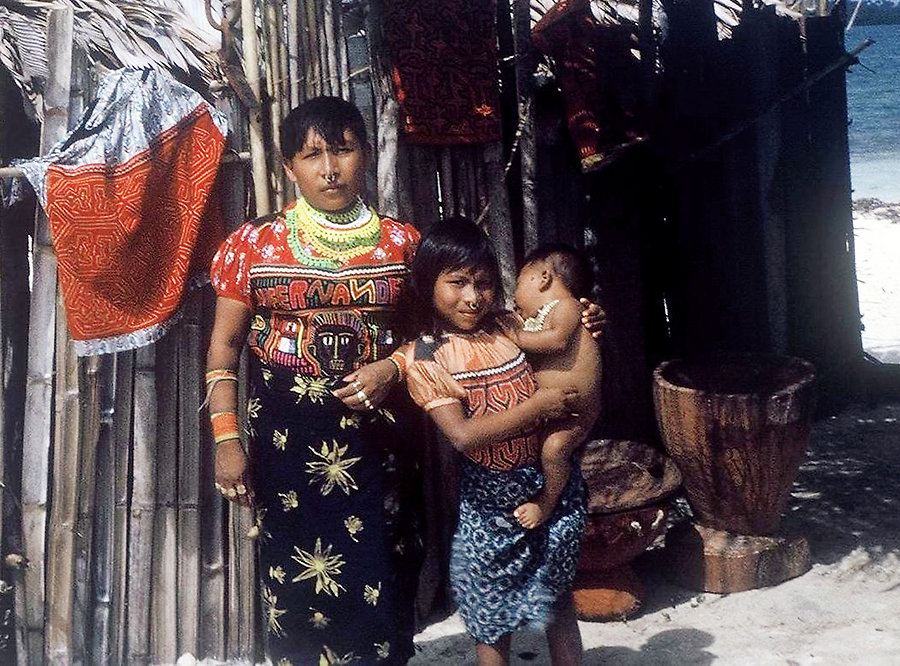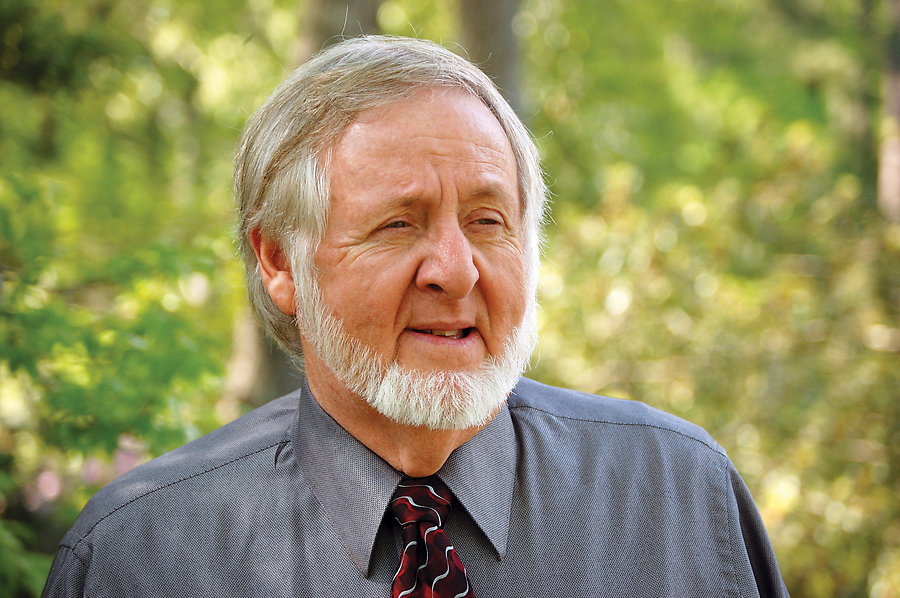 A STORY A HALF-CENTURY IN THE MAKING Reverend Dr. Bill Austin recalls youthful assignment working among prehistoric tribe by Candance Moore In the waters of the southern Caribbean Sea, just off the coast of Panama, lies the San Blas island chain. Coconut trees are the only plant-based food source capable of growing there. Individual islands are the size of a few city blocks, making modern infrastructure impossible. Humid tropical heat- even in winter- keeps the mosquitoes in abundant supply. These islands remain one of the planet's last truly isolated, undeveloped frontiers. But these islands aren't empty. One indigenous tribe- a hardy people known as the Kuna- carved out an unlikely home there after being driven from the mainland. According to their ancient traditions, they are God's special people with a mandate to preserve their distinct prehistoric heritage and culture. A war with Panama in 1925 proved how hard they would fight for the right to be left alone. Only a small handful of Westerners have managed to integrate with these people. But in 1966, Hampton Roads' own Dr. Bill Austin had the incredible privilege of spending 13 days with them. He has now captured his special glimpse of their hidden world in a soon-to-be-published memoir, Coconuts for Hammocks. To this day, outsiders are barred from most of the islands. The Kuna strictly limit tourism to one or two outposts where an atmosphere of look-but-don't-touch permeates social transactions. The Kuna even invented phony dances to perform for outsiders so that the world wouldn't see how they really dance. Bill's opportunity to spend time with the Kuna was due in no small part to the history of the Panama Canal. After the canal was completed in 1914, strips of land flanking each side of it were handed over to the U.S. Federal Government to manage. Wanting to keep the canal as Americentric as possible, Congress appropriated land for nondenominational English-speaking churches. Called union churches, they had a mandate to bring peoples and cultures together, promoting American values in a non-confrontational way. One of these churches was called Margarita Union Church. "...if we cultivate the idea that being different is a gift, we begin seeing each other with different eyes. In the process, we realize that what unites us as human beings is much greater than those things that make us culturally different." - Dr. Bill Austin In 1965, young Bill Austin was immersed in advanced studies at Lexington Theological Seminary. "The dean of the seminary called me to his office," Bill remembers with a smile. "Of course, not knowing what he wanted, I was nervous. There was a smile on his face when he asked me, "Bill, how would you like to go to Panama for a year? The faculty has nominated you for the internship as assistant pastor of the Margarita Union Church in the Canal Zone. Each year they choose one middler student who is single from a seminary to serve for one year in the Canal Zone. We would like to submit your name as our candidate for this internship. Would you like to go?'"  A Kuna family in front of their home in the San Blas island chain off the coast of Panama. Bill jumped at the chance to put his faith into action. He was chosen by the Union Church to serve as an intern from August 24, 1965 to August 18, 1966. He flew from his hometown of Memphis to New Orleans, and from there boarded a ship to the Canal Zone. Once there, he created a youth initiative among the four union churches for humanitarian projects. "The United States Army, which maintained a base there. helped us with personnel and supplies," Bill recalls. "They even provided a landing craft to transport us and our supplies to the islands. We had to take food and 55-gallon water barrels." Other missionaries in the area volunteered to share all the information that they had managed to gather. "It was a team effort," Bill notes. "None of us could have made a dent if we'd acted alone." Even to the Panamanians, the Kuna of San Blas had remained enigmatic. Failed attempts at political unity seemed to push them further away. While Panama endured the unstable (and sometimes violent) growing pains of a developing nation, the Kuna indifferently traded in coconuts as usual. They were rapidly falling behind their Central American peers, and the gap was becoming a strange source of pride. But the Kuna did have the Gospel. A few dozen converts on various islands found that Christianity promoted many of their cultural values, such as developing a strong moral sense, honoring of one's parents, and resisting the lure of worldly wealth. Where political, economic, and military pressure had all fallen short, religion managed to open one tiny door into the Kunas' good graces. On the island of Carti Tupile, the chief was a Christian convert who hosted some sixty attendants for church services in his home. Although he had no interest in American social customs, he saw value in community centers. He knew he could better serve the needs of his people by providing a secure location for schooling, medicine, and formal church activities. In the summer of 1966, the chief made a bold decision to allow Bill's youth program to come and build the facility. "We were to build a concrete block building in front of the Chief's bamboo hut," Bill explains. "The building would be used for a church, a school, and a place where doctors could treat the Indians. The boys would stay in the chief's home, while the girls stayed in the Medicine Man's home. They were to sleep in hammocks bought with coconuts." The next thirteen days plunged Bill's team into the fascinating world of an exotic pre-historic culture in all of its color, music, folklore, ceremony and sense of belonging. As the few remaining vestiges of the past disappear around us, the Kunas of San Blas carry on, and Bill fondly recalls the time he spent with them in his new book, Coconuts for Hammocks. "I want to share this story because I think it's important that we have an appreciation for cultures that are different from ours," Bill concludes. "Sometimes when people don't operate in the same way we do, we pull away from them. But if we cultivate the idea that being different is a gift, we begin seeing each other with different eyes. In the process, we realize that what unites us as human beings is much greater than those things that make us culturally different."  The Reverend Dr. Bill Austin Dr. Bill Austin's book Coconuts for Hammocks, will be published by Press Pass in early 2019. Be sure to read every installment of Relationships by Dr. Bill Austin published each month in The Shopper and always available online at www.TheShopper.com Reverend Dr. Bill Austin |